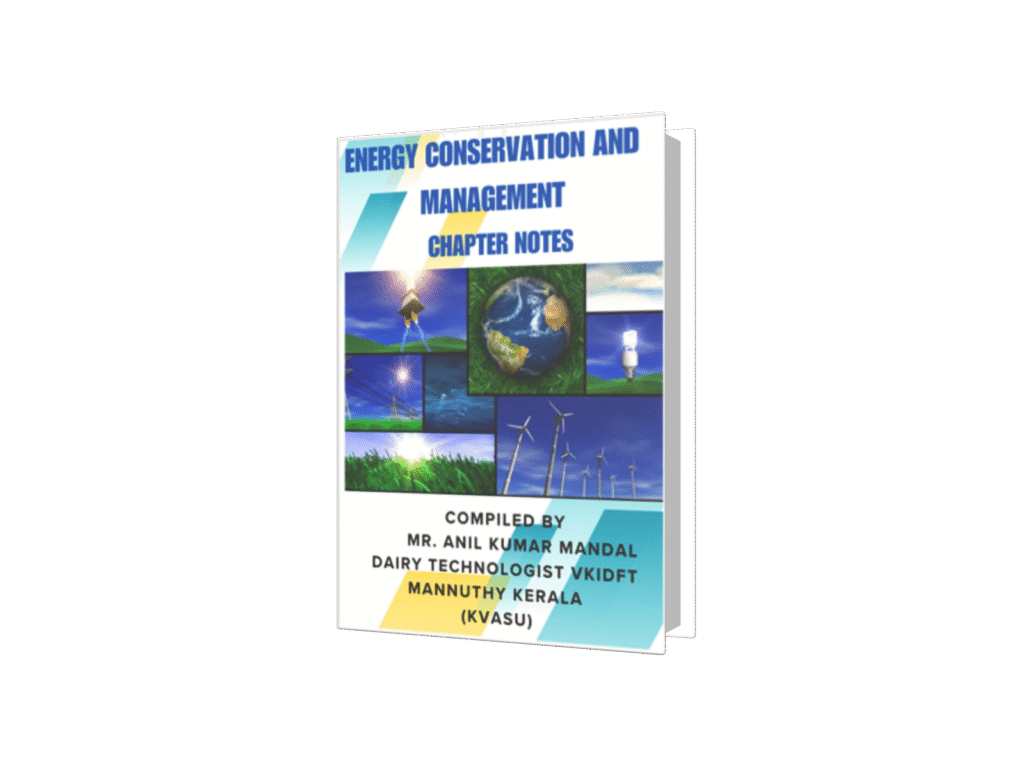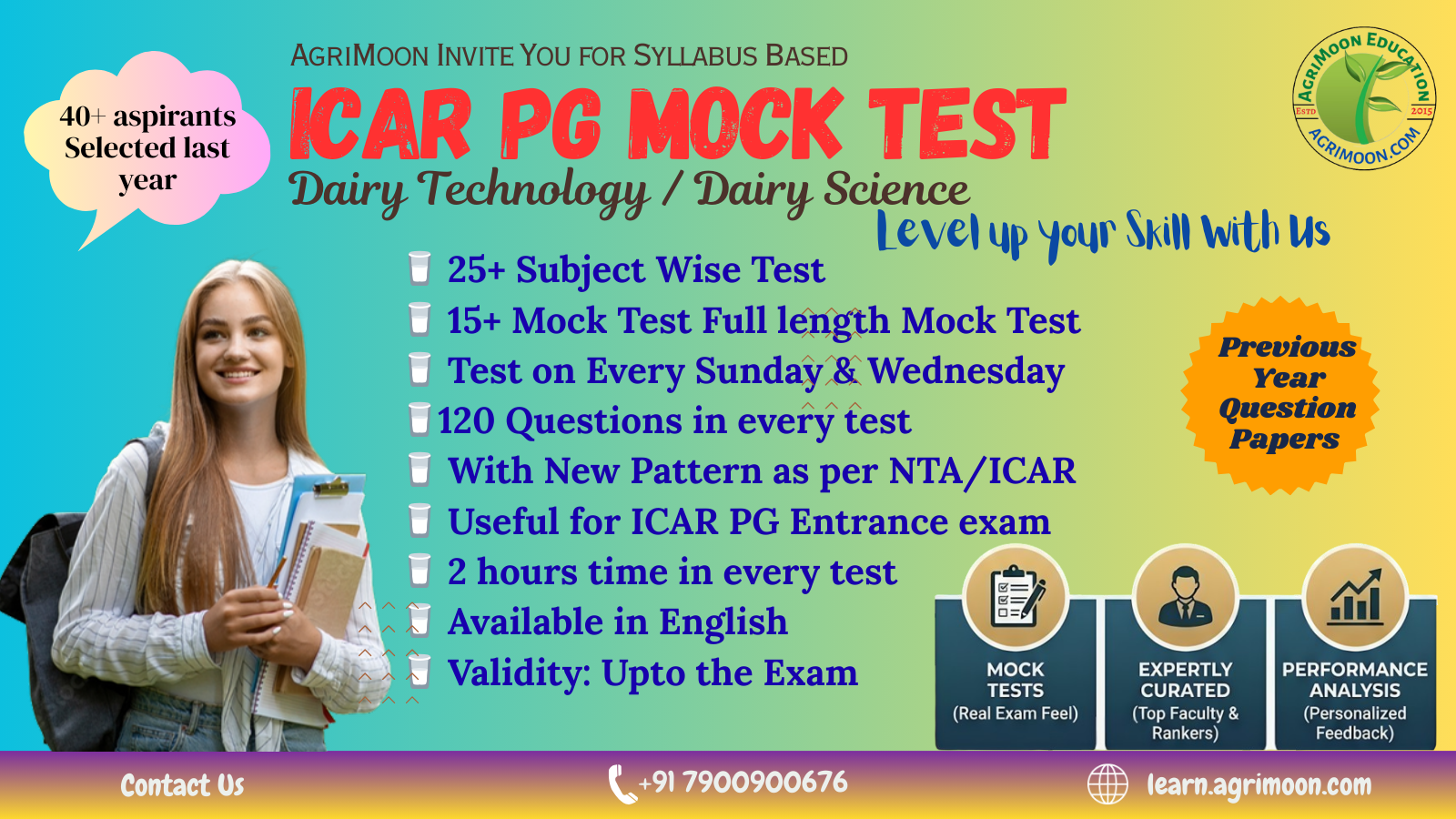Energy management is a process by which a sector or an organisation can effectively manage how much energy they produce and how to control, monitor and conserve as much energy as they can while also generating enough energy to meet the demand of the customers…
Book Details

Language: English
Pages: 162
Compiled By: Anil Mandal
Price: Free
Course Outline – Energy Conservation and Management
| S.No. | Chapter Title |
|---|---|
| 1 | Introduction, Classification, Present and Past Scenario of Primary Energy Resources in the World; Environmental Aspects Associated with Energy Utilization |
| 2 | Potential and Opportunities of Industrial Energy Conservation in Dairy and Food Processing; Energy Conservation Act 2001 and Its Features; Schemes of Bureau of Energy Efficiency (BEE); Electricity Act 2003; Integrated Energy Policy; Electrical Load & Demand Management; Energy Management Information Systems |
| 3 | Energy Management & Audit: Definition, Need, Types, Audit Approaches; Understanding Energy Costs, Benchmarking, Energy Performance; Matching Energy Use to Requirement; Maximizing Efficiencies; Optimizing Input Energy; Fuel Substitution; Energy Balances; Computation of Efficiencies; Instruments & Metering |
| 4 | Energy Conservation in Refrigeration & AC Systems (HVAC); Cooling Towers; Pumps & Pumping Systems; Fans, Blowers, Air Compressors; Maintenance of Vacuum & Compressed Air Lines; Water Conservation, Reuse & Auditing; Energy Conservation in Wastewater Treatment |
| 5 | Electrical System: Billing, Transformers & Losses; Energy Savings in Transformers; Power Quality; Power Factor & Its Improvement; Saving Controllers & Cost Saving Techniques |
| 6 | Electric Motors: Selection & Application; Energy Efficient Motors; Variable Speed & Frequency Drives (VFDs) and Their Role; Industrial Lighting: Quality, Sources, Efficiency, Light Controls |
| 7 | Energy Efficiency in Utilities: High Efficiency Boilers; Improved Combustion Techniques; Fluidized Bed Combustion & Multi-Fuel Capabilities; Application of Recuperators to Recover Energy from Flue Gases, DG Exhaust, Spray Dryer & FBD Hot Air |
| 8 | Energy Conservation in Steam Distribution Systems; Thermic Fluid Heaters; Efficient Piping Layouts; Protective & Insulating Covers; Steam Conservation; Maintenance of Steam Auxiliaries & Fittings |
| 9 | Energy Efficiency & Conservation in Thermal Processes: Freezing, Evaporation & Drying; Role of Steam Traps; Energy Saving in Hot Air Generators & Steam Radiators |
| 10 | Energy Conservation in Buildings: Concept of “Green Buildings”; Waste-Heat Recovery & Thermal Energy Storage; Condensate Recovery & Reuse |
| 11 | Cleaner Energy Sources: Solar & Biomass Energy; Solar Thermal & PV Options for Food Processing; Carbon Credits & Carbon Trading; Concepts of CDM, Economic & Societal Benefits |
| 12 | Fuel & Oil Conservation; Diesel Generating Sets; Thermal Energy Storage & Applications; Recuperators, Generators, Thermo-compressors; PCM Encapsulation |
| 13 | Role of Automation in Energy Conservation: PLC-Based Controls, Computer Integration & SCADA Systems in Dairy & Food Processing |
All Agriculture Books Free Download
All Dairy Technology Books Free Download
All Agricultural Engineering Books Free download
All Horticulture Books Free Download
All Fisheries Science Books Free Download
For Daily Update follow us at:
Facebook Telegram Whatsapp Instagram YouTube
Feedback: After Reading these ICAR eCourse, please give your feedback for improve of the e-Course contents on this website. Click Here
Disclaimer: The information on this website does not warrant or assume any legal liability or responsibility for the accuracy, completeness or usefulness of the courseware contents.
The contents are provided free for noncommercial purpose such as teaching, training, research, extension and self learning.
If you are facing any Problem than fill form Contact Us
If you want share any article related Agriculture with us than send at info@agrimoon.com with your contact detail.



